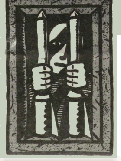Is Dimona's reactor suffering from old age?
By Ze'ev Schiff
Haaretz
Fri Dec 10 04
Among the complaints against Israel concerning the nuclear issue is the claim that the nuclear reactor in Dimona poses a serious safety threat to its surroundings due to its very advanced age. Our neighbors Egypt and Jordan have also voiced such contentions. Others argue that because Israel is not a signatory to the international Non-Proliferation Treaty (NPT), it cannot receive assistance from other countries in renovating the reactor in Dimona.
 All of these contentions are erroneous. First, the reactor in Dimona has already
undergone various fundamental renovations, and more than just once or twice.
Second, it is not true that Israel was rejected when approaching other countries
for assistance in revamping the reactor. Third, it is not true that safety-related
assistance for reactors is not extended to countries that are not signatories
to the NPT.
All of these contentions are erroneous. First, the reactor in Dimona has already
undergone various fundamental renovations, and more than just once or twice.
Second, it is not true that Israel was rejected when approaching other countries
for assistance in revamping the reactor. Third, it is not true that safety-related
assistance for reactors is not extended to countries that are not signatories
to the NPT.
The director general of the Atomic Energy Commission in Israel, Gideon Frank, explained in response to these questions: "Israel does not need assistance from abroad. It can renovate the reactor in Dimona by itself. We have all the necessary know-how, including the engineering, technological and other information. There is no need to approach others." The fact that Israel, for many years, has been a member of the committee of experts on reactor security of the International Atomic Energy Agency testifies to Israel's level of knowledge in this area.
According to Frank: "There is practical significance to the age of a nuclear reactor that has undergone the required improvements and whose systems have been replaced by more modern ones." Israel's commission is so self-confident on this issue that it declared on its Web site during a recent discussion of reactor safety: "We are even stricter than others!"
The U.S. Nuclear Regulatory Commission used to grant licenses to operate reactors for 40 years. In recent years, this has changed and the operating licenses have been extended, after examining the reactor, to 60 years. Of 104 American reactors, 86 will receive such extensions, as well as approval for increasing their output. One of the reactors, which is located in a populated area in Gettysburg, Maryland, is now more than 40 years old. In the U.S., these reactors are usually used to generate power. The potential danger in power-generating reactors, due to pressure and high temperatures, is much higher than in research reactors, like the one in Dimona, which operate at temperatures of 40 to 50 degrees Celsius.
In comparison to Israel, which independently oversees the safety of its Dimona reactor, there are two other examples of how relations have been handled with two countries, India and Pakistan, which are not signatories to the NPT and which have also conducted nuclear tests. Canada, which sold reactors to India and Pakistan, felt it had been deceived when both countries violated their agreements with Canada. In 1974, Canada cut off its nuclear relations with India and in 1979 did the same with Pakistan. Following the accident at the Chernobyl reactor, Canada was ready to resume nuclear relations in the area of safety with these two countries. Pakistan accepted the offer and India, surprisingly, rejected it.
On the other hand, India reached agreement with Washington on the issue of nuclear safety. Nuclear relations between the two countries had also been cut off after a nuclear test conducted by India in 1998. But in 2002, President Bush announced the resumption of nuclear ties with India in the realm of safety. Washington had been ready to add two new areas to the discussions with India. Thus, the subject of nuclear safety is not always linked to diplomatic issues.


